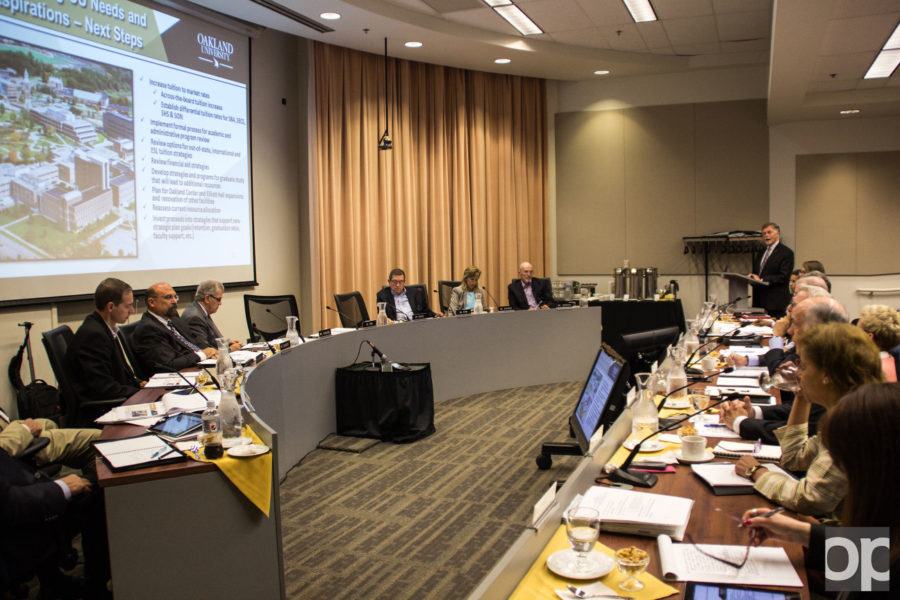Conflict of interest policy reviewed, updated
The Board of Trustees’ audit committee gathered on Aug. 26 to discuss a conflict of interest policy for the university.
The Board of Trustees’ audit committee gathered on Aug. 26 at 2:30 pm in Elliott Hall. Their purpose was to review a 2014 update to the conflict of interest policy for the university. Presiding the meeting was Chair Ronald E. Robinson, with the policy update review by David P. Vartanian and John W. Beaghan.
The audit committee is responsible for “overseeing financial reporting and disclosure,” according to Investopedia. The committee is made up of university directors and representative Randy Morse from the board’s external audit firm, Andrews, Hooper and Pavlik PLC.
The policy update amended and replaced two previous policies — the Conflict of Interest Policy, which was last amended in 1995, and the Conflict of Interest Policy in the Appointment and Assignment of Related Employees, introduced in 1993.
According to the revised Board of Trustees conflict of interest policy from May 7, 2014, “conflicts of interest generally arise when a person in a position of authority may benefit personally from a decision he or she could make.”
Discussions concerning an update to the policy started in 2013. The General Counsel consulted several different state policies and sources in order to create a more all-encompassing conflict of interest policy.
According to the previously mentioned agendum, the sources referenced included, but were not limited to, “the conflict of interest provisions contained in the Michigan Constitution and applicable Michigan statutes; Internal Revenue Service conflict of interest rules and regulations for tax-exempt organizations; the Sarbanes-Oxley Act; (and) the policies adopted by all other Michigan public universities.”
The list of referenced sources was thorough, while showing several points of improvement. The update defines all forms of conflicts of interest, the way in which the conflict will be reviewed and subsequently resolved, and immediate documentation of any and all conflicts of interest.
In Article III of the updated policy, it outlines an annual disclosure system in which “each year trustees, executives, deans, and directors must submit a signed written disclosure that affirms they will comply with this policy, and informs the university of their personal, financial and business interests…that could involve an arrangement with the university.”
These improvements ensure that proper evaluation and resolution of conflicts of interests will be follow the proper chain of command and not include the interested party, while holding staff members responsible for disclosing and agreeing to this policy on a regular basis. The revised policy was updated and drafted by the governance committee, aided by the general counsel, external audit firm, and the internal audit director.
The policy revision agendum states that there are no budget or educational implications with this update, and the revision of Policy 406 states that, “no arrangement undertaken by the university is void or voidable or may be challenged by a third party under this policy.” This means that no decision made by the reviewing process can be challenged by an outside persons.
All of the Board of Trustees’ and Audit Committee’s meeting minutes and agendas can be found in Oakland’s News Archives, if you are looking for further information.











